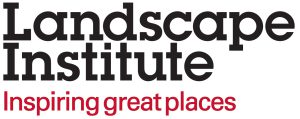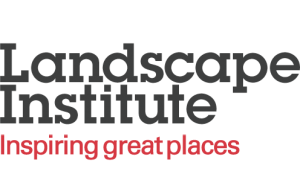A structured method of gauging the abilities of practitioners within the landscape sector
Assessing Knowledge and Skills with the Competency Framework
As the professional body for the landscape sector, it is the Landscape Institute’s role to continually reflect the changing needs of landscape practitioners, helping them remain trusted, relevant and successful, today and in the future.
To enable this, we developed the LI Competency Framework which provides a structured method of gauging the abilities of practitioners within the landscape sector. It is designed to demonstrate and articulate the requisite knowledge and skills of a landscape professional at various levels of proficiency and experience.
How the Framework is Used
The framework underpins the various routes to Technician, Chartered and Fellow membership for landscape practitioners from a wide range of fields of practice, from landscape architects, to landscape designers, to parks managers to arboriculturists and beyond.
Maintaining these standards enables the sector to be at the forefront of the fight against climate change and guardians of the natural and built environment. They are central to all of the LI’s work in education, from accreditation to apprenticeships, and for members in terms of their CPD and assessment of membership.
Encompassing professional competencies, core landscape competencies, and additional landscape competencies, the framework is flexible, adaptable and will support landscape professionals as they progress through their career.
“The framework helps us ensure that we’re meeting the ever-growing needs of the sector as we fight against the climate crisis whilst ensuring we maintain robust and rigorous standards of professionalism.”
Jane Findlay, FLI, Immediate Past President of the Landscape Institute and Director of Fira
The Competency Framework Structure
The competency framework reflects the common skills that the landscape profession needs in order to deliver professional advice to others. There are three competency categories – Professional, Core, and Additional – which mirror the importance of those competencies in the real world.
Professional competencies: These are the skills, behaviours and areas of knowledge that are considered essential amongst professionals across all sectors. These closely reflect skills many other professions also require of their members.
Core landscape competencies: These are the skills, behaviours and areas of knowledge that are unique to the landscape profession. (Referred to as ‘working with place and nature’ competencies.)
Additional landscape competencies: These are the specific skills, behaviours and areas of knowledge required for certain fields of practice across the entire landscape profession. Most members would only have a selection of these skills.
Assessing Competencies
An individual’s level of achievement against each competency is assessed as follows:
A – Expert
The individual has expert knowledge of this competency and extensive experience applying it in practice. They are recognised as an authority in this area by others within and/or outside their organisation.
B – Accomplished
The individual consistently applies this competency in practice and can confidently make decisions and recommendations in this area.
C – Able
The individual has experience of applying this competency in practice.
D – Understanding
The individual understands the application of this competency in practice.
Please refer to the Competency Framework to see the specific requirements for Technician, Chartered and Fellow.
Entry Standards timeline
As you can see from the timeline below, several new entry standards have been created and made operational over the last year. Each one either provides a new route into landscape careers or a new way to rise through the profession.
Looking forward, the Pathway to Chartership will be mapped to the Competency Framework and Pathway options will be introduced for both Technician and Fellow.

If you have any further questions about the Competency Framework please get in touch with education@landscapeinstitute.org.
“Coming from a parks and green space management background, I’ve often felt there was no obvious “professional home” for parks people, no where to obtain quality training and skills that would be recognised nationally and that we were not part of the wider landscape sector. Joining the LI has meant not only do I now have a professional home, I’ve been able to work to open up the routes to entry, to help create a diverse and supportive community of landscape professionals in the broadest sense.”
Sue Ireland, FLI, Consultant, past Director of Open Spaces, City of London and member of the LI’s Entry Standards Steering Group.






